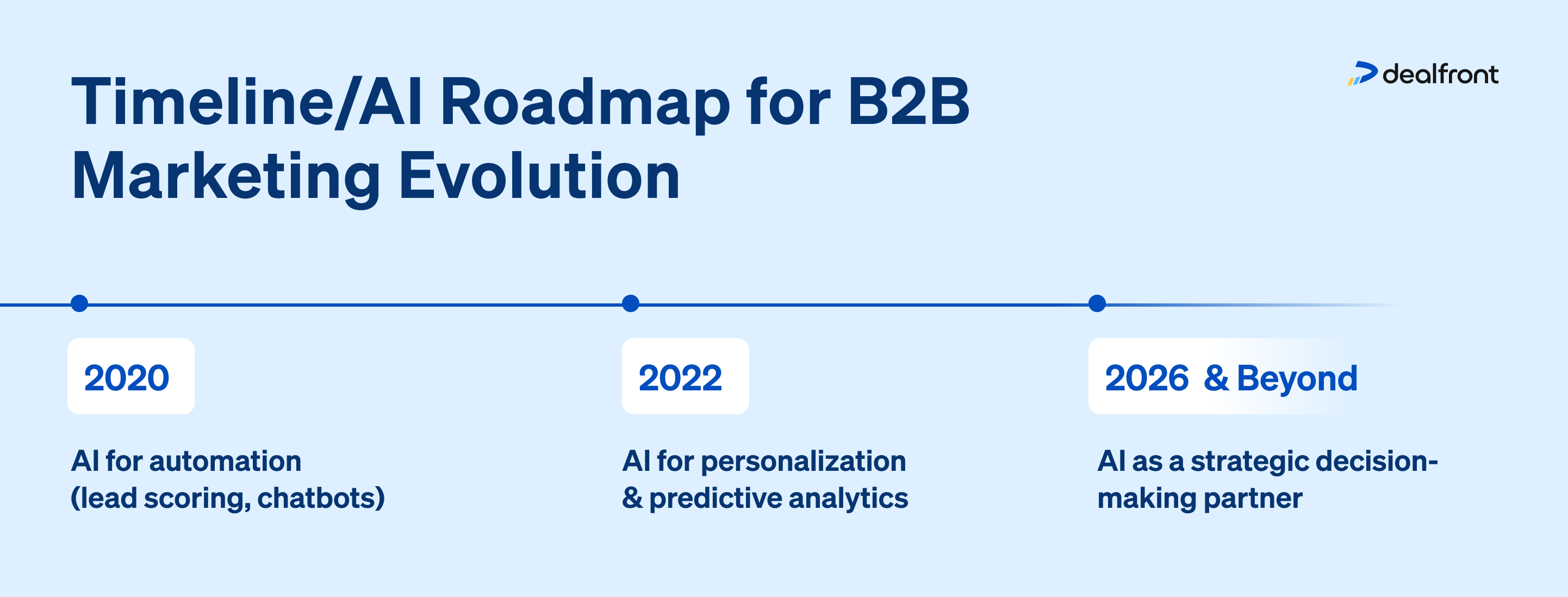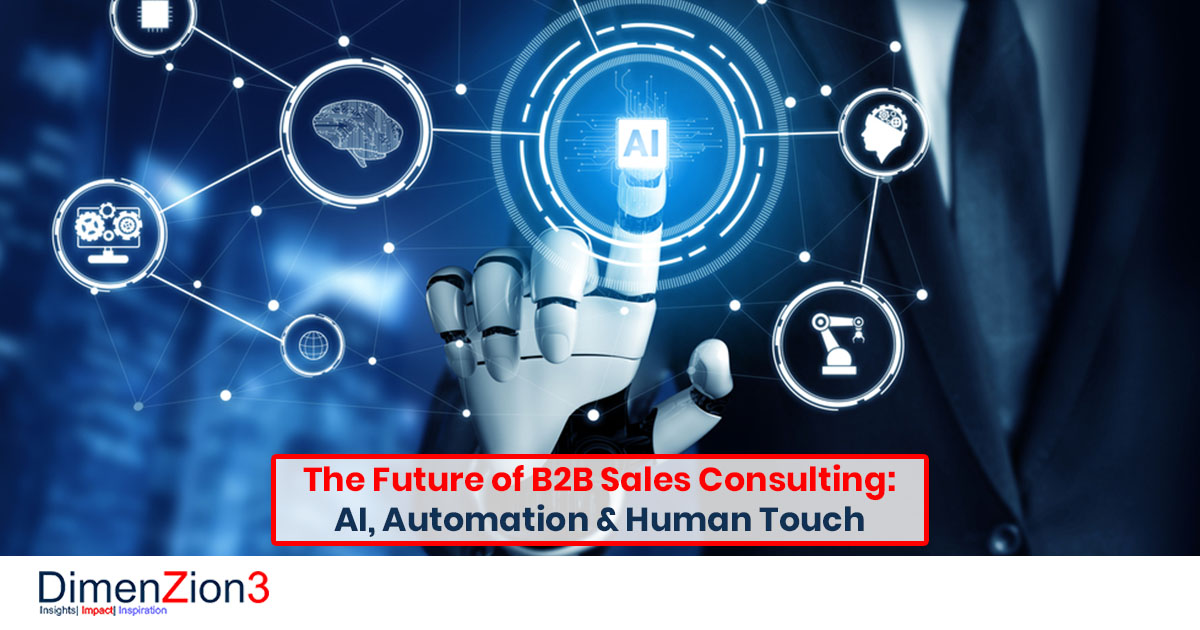How Growth Systems For B2B enhances customer experience in B2B operations
Transform Your Company: How AI Automation Is Changing B2B Operations
AI automation is reshaping B2B operations in significant methods. Firms are adopting this technology to enhance workflows and enhance efficiency. As jobs become automated, services can concentrate on tactical development instead of mundane processes. The implications of these modifications are profound, influencing every little thing from customer communications to provide chain administration. Comprehending this makeover is necessary, as the future of organization rest on the efficient integration of AI right into day-to-day procedures. What lies ahead in this progressing landscape?
Recognizing AI Automation in B2B Context
As businesses increasingly seek efficiency, understanding AI automation within the B2B context comes to be important. AI automation refers to the application of synthetic intelligence innovations to improve and enhance service procedures. In B2B atmospheres, this can manifest in various forms, such as automating data entry, optimizing supply chain logistics, or improving inventory monitoring. Organizations leveraging AI automation can minimize functional prices, minimize human error, and rise performance. AI devices can analyze large quantities of data to supply workable insights, making it possible for notified decision-making. The combination of AI right into B2B procedures not just changes standard process yet additionally promotes agility and scalability, enabling services to adapt to market adjustments quickly and effectively. Welcoming this innovation is essential for staying competitive in today's electronic landscape.
Enhancing Client Experience Via AI
Exactly how can AI transform client interactions in the B2B market? AI enhances consumer experience by supplying personalized, prompt, and reliable service. Intelligent chatbots and digital aides can manage inquiries 24/7, making certain clients obtain immediate actions. Predictive analytics allow companies to prepare for customer requirements, customizing offerings appropriately. AI-driven systems can analyze client information, permitting targeted advertising approaches and enhanced involvement. Additionally, belief analysis devices evaluate client comments, aiding organizations fine-tune their services. By automating regular jobs, AI releases up human resources to concentrate on high-value interactions, fostering stronger connections. The combination of AI not just enhances interaction yet additionally constructs count on and loyalty, eventually boosting the total client experience in the affordable B2B landscape.
Simplifying Supply Chain Management With AI
AI plays an important function in enhancing supply chain management via anticipating analytics and automated inventory control (Minarik AI). By leveraging anticipating analytics, organizations can anticipate demand fluctuations and change their operations appropriately. Automated stock systems further boost effectiveness by ensuring stock levels are preserved, reducing waste and boosting overall performance

Anticipating Analytics Advantages
While many businesses face challenges in taking care of complicated supply chains, predictive analytics supplies a transformative option by leveraging vast amounts of data to forecast trends and optimize operations. By evaluating historic data alongside real-time inputs, predictive analytics enables firms to identify patterns and anticipate future demands. This foresight permits for even more educated decision-making, improving effectiveness and minimizing prices. On top of that, organizations can proactively attend to potential interruptions by anticipating supply chain bottlenecks and readjusting approaches appropriately. The combination of predictive analytics not only improves stock administration but also cultivates stronger relationships with vendors and clients through prompt feedbacks to market changes. Eventually, the fostering of predictive analytics empowers organizations to remain competitive in a significantly dynamic company environment.
Automated Inventory Control
As companies significantly rely upon predictive analytics to enhance supply chain operations, automated supply control arises as an effective ally in this initiative. By leveraging AI-driven innovations, companies can boost accuracy in supply tracking, reduce stockouts, and lessen excess supply. Automated systems assess real-time information, permitting companies to anticipate need fluctuations and change supply degrees accordingly. This not only simplifies order fulfillment but additionally boosts capital management by minimizing holding costs. Furthermore, AI can identify patterns in acquiring habits, enabling more enlightened decision-making pertaining to distributor connections and procurement methods. Ultimately, automated supply control not just improves functional performance yet additionally improves customer satisfaction by making certain product schedule, strengthening its duty as an important part in contemporary supply chain monitoring.
Data-Driven Choice Making Powered by AI
In today's competitive landscape, companies progressively count on data-driven decision-making to improve functional effectiveness and calculated planning. Man-made knowledge plays a pivotal function in this transformation by examining large quantities of data swiftly and properly. AI algorithms recognize patterns, patterns, and anomalies that human experts find could ignore, enabling companies to make educated choices based on real-time insights - Minarik AI. This ability permits business to forecast market shifts, optimize source allowance, and customize their offerings to consumer demands. Furthermore, AI-driven analytics help with danger assessment and monitoring, making sure that organizations can browse uncertainties effectively. By leveraging these sophisticated devices, services not just enhance their decision-making processes but likewise get a competitive advantage in their particular markets, fostering growth and development
Automating Repeated Jobs to Boost Efficiency
Simplifying repetitive tasks through automation considerably improves productivity within B2B operations. By implementing AI-driven options, firms can remove mundane tasks such as data access, billing processing, and record generation. This shift enables employees to concentrate on higher-value jobs, cultivating imagination and strategic thinking. Automating these taxing processes not only minimizes human mistake but additionally speeds up process performance. Additionally, businesses can achieve constant outcomes and boosted precision, which is critical in maintaining client satisfaction. The combination of automation devices makes it possible for organizations to allocate sources better, ensuring that teams can react swiftly to market demands. Ultimately, taking on AI for recurring jobs is a critical action that transforms operational capabilities and drives total business growth.
Integrating AI With Existing Business Processes
Lots of organizations encounter obstacles when incorporating AI with existing business processes. These challenges commonly stem from an absence of understanding concerning just how AI can enhance existing operations. Effective combination needs a comprehensive analysis of existing operations to determine areas where AI can include value. Organizations should additionally guarantee that their groups are furnished with the necessary skills to take advantage of AI devices efficiently - Growth Systems For B2B. In enhancement, seamless integration hinges on the compatibility of AI technologies with heritage systems. Firms commonly find it advantageous to adopt a phased technique, piloting AI applications in certain departments prior to a broader rollout. This technique permits for adjustments based on preliminary responses, ensuring smoother shifts and taking full advantage of the possible advantages of AI automation in enhancing productivity and performance
Future Trends in AI Automation for B2B Firms
As B2B companies aim to the future, improved information analytics is set to play a crucial role in driving decision-making processes. Smart procedure automation will certainly likewise become a crucial trend, streamlining procedures and improving effectiveness. These advancements assure to improve exactly how businesses operate, eventually resulting in even more nimble and receptive organizations.
Boosted Information Analytics
While organizations progressively rely upon data-driven choices, the function of AI in enhancing information analytics is becoming much more vital in B2B procedures. AI innovations promote the collection and evaluation of large datasets, allowing companies to uncover beneficial insights that drive calculated planning. Predictive analytics powered by AI enables companies to forecast market patterns and consumer actions with higher precision. In addition, device discovering algorithms improve data interpretation, recognizing patterns that human experts may overlook. This brings about more enlightened decision-making and optimized source appropriation. As B2B business remain to welcome AI-driven analytics, they can expect enhanced operational efficiency, enhanced consumer experiences, and an affordable edge in the market. The future of data analytics in B2B pivots on incorporating advanced AI abilities.
Intelligent Process Automation
Intelligent Process Automation (IPA) is poised to change B2B procedures by perfectly integrating AI innovations with typical organization processes. This ingenious method combines robotic procedure automation (RPA) with sophisticated AI capacities, making it possible for companies to boost effectiveness and accuracy. Companies can automate repeated jobs, such as information entry and billing handling, enabling employees to concentrate on strategic campaigns. IPA likewise leverages artificial intelligence and all-natural language processing, boosting decision-making with real-time information evaluation. As organizations progressively take on IPA, they can expect considerable price decreases and boosted client experiences. Future fads suggest a growing reliance on IPA for scalability and flexibility, placing companies to thrive in an ever-evolving market. Welcoming IPA will be important for maintaining competitiveness in the digital age.
Regularly Asked Concerns
What Industries Advantage Most From AI Automation in B2B Procedures?

How Can Little Services Implement AI Automation Properly?
Small companies can execute AI automation efficiently by identifying repetitive tasks, picking ideal devices, incorporating services gradually, training staff, and continuously evaluating performance to enhance processes, ensuring a smooth changeover and making best use of effectiveness.
What Are the Prices Connected With AI Automation Execution?
The prices linked with AI automation implementation commonly include software acquisition, facilities upgrades, training personnel, recurring upkeep, and potential examination fees. These expenditures can differ substantially based upon the range and intricacy of the automation services selected.
Exactly how Do I Determine ROI From AI Automation Initiatives?
To measure ROI from AI automation efforts, one must assess expense savings, productivity renovations, and income development against implementation costs. Tracking crucial performance indicators over time gives important understandings into efficiency and overall return on financial investment.
What Skills Are Needed to Take Care Of AI Automation Projects?
Reliable monitoring of AI automation tasks calls for abilities in task monitoring, information evaluation, programs, and comprehending AI innovations. Furthermore, solid communication, analytical capacities, and flexibility are important for steering the intricacies of such efforts.
As services significantly seek effectiveness, comprehending AI automation within the B2B context becomes vital. The combination of AI right into B2B operations not just transforms conventional process yet also cultivates dexterity and scalability, allowing companies to adjust to market changes swiftly and efficiently. While organizations significantly count on data-driven choices, the role of AI in enhancing information analytics is coming to be more essential in B2B procedures - AI Automation For B2B. Intelligent Refine Automation (IPA) is poised to revolutionize B2B operations by perfectly incorporating AI technologies with conventional organization procedures. Reliable monitoring of AI automation jobs needs skills in project administration, information analysis, shows, and understanding AI modern technologies